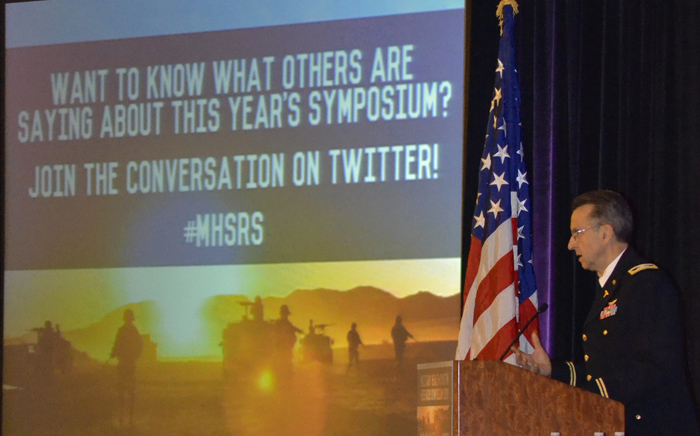Effort to Develop Brain Injury Classification System Lays Groundwork for Future

During the Military Health System Research Symposium in Fort Lauderdale, Florida, Aug. 20, health experts focused their discussion on an effort to develop a classification system for traumatic brain injury ' work they say will lay the foundation for advancements in diagnosis and care.
"Understanding the brain and the mind is our greatest challenge," said Dr. Terry Rauch, director of Medical Research at Health Affairs. "Science takes time but our service members and families need help now. So our research mission is most urgent."
Traumatic brain injuries have been called one of the signature wounds of the conflicts in Iraq and Afghanistan. Since 2000, more than 300,000 service members have sustained a traumatic brain injury, according to the Defense Department. More than 80 percent occur in a non-deployed environment. These injuries are prevalent in the civilian sector, too.
"The rate is epidemic," said Col. Dallas Hack, U.S. Army Medical Research and Materiel Command's Brain Health coordinator.
Hack added, however, a major issue is that there is not a universally agreed upon definition for concussion, also referred to as mild TBI. He explained there are actually more than 40 definitions for concussion found in current literature.
"No one has really defined what a concussion is," said Dr. Jamshid Ghajar, director of the Stanford Concussion and Brain Health Center, who is working on the TBI classification project.
Ghajar added that without an effective classification system, there is no way to know what treatments are helpful for certain patients.
"We know that 90 percent [of patients with concussion] recover within a week and 10 percent don't," Ghajar explained.
Once they can develop the evidence-based classification system for TBI, Hack said military medicine will focus on developing stronger "end points," in collaboration with the Food and Drug Administration, which will be new measures to show if a diagnostic is effective.
"I think the future is very ripe for advancing the field," said Kathy Helmick, deputy director, Defense and Veterans Brain Injury Center. "Now is the time we can do in the next five years what may have taken 10 years in the past. There remain a lot of unknowns, but we are poised to address them."
 An official website of the United States government
An official website of the United States government
 ) or https:// means you've safely connected to the .mil website. Share sensitive information only on official, secure websites.
) or https:// means you've safely connected to the .mil website. Share sensitive information only on official, secure websites.


